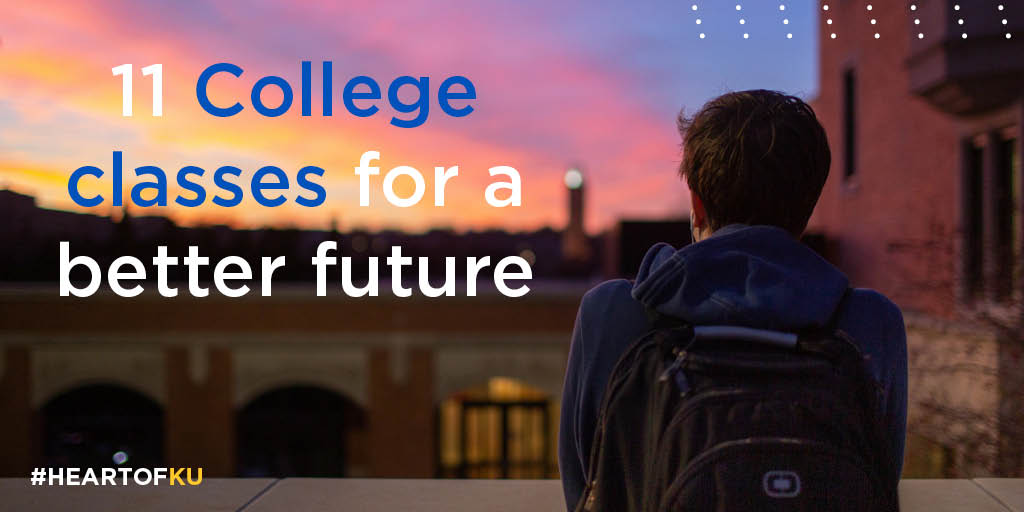
It’s been a challenging year, full of disruption, uncertainty, and one unprecedented event after another. And with a myriad of new and ongoing challenges still ahead – the pandemic, climate change, racial injustice, political turmoil, international tensions, and more – it’s more important than ever for leaders to understand and seek solutions to today’s problems.
From government intelligence and border patrol to COVID-19, environmental justice, and Black Lives Matter, topics covered in classes in the College will help prepare you to critically analyze and take on some of the biggest issues facing our communities. Here are 11 classes that will spark inspiration and help make the world a better place.
RUSS 104 Russian – Elementary Russian I
In today’s globalized world, knowing the basics of another language can lead to exciting opportunities and stand out to job recruiters. So whether you’re hoping to pursue careers in government or intelligence, looking to expand your language skills, or just curious about other cultures, get started with the fundamentals of the Russian language in RUSS 104.
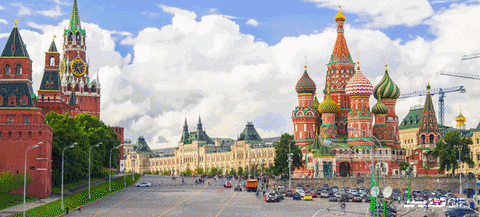
First semester. Five hours of basic language acquisition and oral practice per week. Essentials of grammar, practice in comprehending, speaking, reading, and writing Russian. Satisfies: Foreign Language 1st Level (F1), U Undesignated elective (U)
POLS 130 Political Science – US Intelligence Community
Agents in the United States intelligence community are experts in keeping secrets about high-priority missions and issues of nationally security closely guarded, which has led to speculation, mystery, and conspiracy theories from curious members of the public. But what does the work of US intelligence actually look like on a day-to-day basis? How are they structured, and what are their processes? Pull back the curtain and see for yourself in POLS 130.

This course provides a comprehensive look at the roles, missions, and structure of the U.S. Intelligence Community. Students will develop an understanding of the components of the intelligence process used by the U.S. Intelligence Community: (1) planning and direction, (2) collection, (3) processing, (4) analysis and production, and (5) dissemination. This course also addresses the various polices and executive orders shaping intelligence collection both domestically and abroad, such as, intelligence oversight and restrictions on sharing and dissemination of information within and between local, state, and federal government agencies and the private sector. On completion of the course, students will have an in-depth understanding of the roles of the various components of the U.S. Intelligence Community and the intelligence processes used to support national security decision makers. Satisfies: Social Science
ABSC 150 Applied Behavioral Science – Community Leadership
Widespread change often starts at the community level with dedicated leaders and vocal support from local organizations. In ABSC 150, you’ll be introduced to service-learning activities and gain a deeper understanding of issues facing local communities and the role of leadership in finding solutions.

An introduction to analysis, intervention, evaluation, and leadership in contemporary problems facing local communities. Readings, lectures, and service-learning activities enable students to understand community problems and how citizens and professionals can address them. Satisfies: Goal 5 Outcome 1 (AE51), S Social Science (S), SF Public Affairs PC (SF)
ENGL 203 English – Consumerism, Comp & Pop Culture
Material culture – whether in the form of Amazon Prime orders, Cheerio boxes, wrench sets, or any other object produced or used by humans – shapes our routines, our interactions with others, and our own conceptions of ourselves. Yet the power of these objects often goes unnoticed in our everyday lives. In ENGL 203, you’ll explore popular and material culture, the rhetorical agency of materials, and their influence on writing by analyzing and creating various forms of communication.

Upcycling, thrifting, Zach King YouTube videos, TikTok challenges like #DJatHome or #FlipTheSwitch—What do they have in common? They are all evidence of how people can find new ways of looking at the objects around them. Our material culture consists of all objects produced or used by humans—Amazon purchases, leaf piles, potholes, and family-sized boxes of Cheez-Its included. This course is all about seeing, wondering, and calling attention to the often-overlooked parts of our everyday lives: the things we usually notice and the things we usually don’t. Whether we’re thinking about them or not, objects have rhetorical agency. In other words, they influence what we say, what we do, what we buy, what we believe, and how we create and communicate. If you counted, how many objects surround you? How many are you wearing? How many do you carry with you in a bag, a wallet, or your pockets? How many of them did you buy and how many did someone buy for you? How many of these objects do you think matter? What are they worth? In this class, students will create a diverse portfolio of compositions that attempt to address these questions. Assignments & lessons will focus on popular and material culture, rhetorical agency, and their influence on writing. Students will analyze and create a variety of communication forms, such as multimedia projects, explorative essays, and short research papers. Satisfies: Goal 1 Outcome 1 (GE11), Goal 2 Outcome 1 (GE21), Goal 3 Arts and Humanities (GE3H), H Humanities (H)
COMS 230 Communication Studies – Fundamentals of Debate
As we’ve seen during the 2020 Presidential and Vice Presidential Debates, being able to communicate ideas clearly and construct sturdy arguments can positively or adversely affect one’s chances of getting through to others. In COMS 230, you’ll be introduced to the fundamentals of the art of debate and learn how to better use words as tools of persuasion in whatever career path or field of study you pursue.

Introduction to the principles of debating. Emphasis on debating techniques, analysis of the question, methods of using evidence, refutation, and brief making. This course fulfills the College argument and reason requirement. Satisfies: Satisfies: Goal 1 Outcome 1 (GE11), U Undesignated elective (U)
ISP 304 Indigenous Studies – Indigenous Peoples of North America
Throughout history, the histories and cultures of Indigenous Peoples have been misunderstood, misrepresented, and oversimplified in popular culture and academia. In ISP 304, you’ll gain a deeper understanding of major issues – such as survival, self-sufficiency, empowerment, and decolonization – facing Indigenous Peoples of North America.
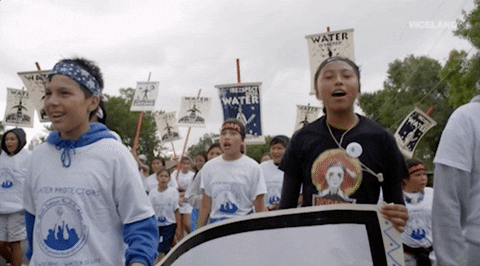
This course concentrates on selected problems in the interdisciplinary field of Indigenous Studies. Courses in this field utilize methods developed in various disciplines to examine issues related to the survival, self-sufficiency, mutual support, empowerment, and decolonization of Indigenous Peoples throughout the world. May be repeated for credit when the topic differs. Satisfies: H Humanities (H)
AMS 320 American Studies – Border Patrolled States
For years, President Trump has pushed the idea that a new Mexico-United States border wall will deter crossing into the US and serve as an easy fix for conflicts on the border. But the realities on the ground of border patrolled states – as well as the subsequent experiences of immigrants who make the crossing – are far more complex. In AMS 320, you’ll explore the politics of immigration and citizenship by looking at responses to the growth of Latinx populations in the US and to international migration to and from Mexico and Central America.
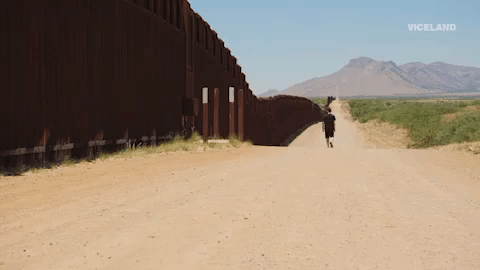
Examines the politics of immigrant, citizenship and space through official, intellectual and popular responses to the growth of Latino/a populations in the U.S. and to international migration to and from Mexico and Central America. Topics include consideration of how responses to immigration articulate racialized and culturally specific (including linguistic and religious) concepts of the nation, and how questions of citizenship and residency dovetail with issues of community “voice”, public space, and diverse notions of “security”. Satisfies: H Humanities (H)
GEOG/ATMO 321 Geography & Atmospheric Science – Climate and Climate Change
Climate change is frequently referred to by scientists and politicians as the greatest existential threat we face as a global society. To combat the worst perils of climate change, researchers first need to have a firm grasp on the principles of climate systems and the various drivers of change to the climate. If you’re interested in learning more about Earth’s climate, its impact on living organisms and the human environment, and the future of climate change, look no further – enrolling in GEOG/ATMO 321 will broaden your knowledge of these urgent subjects.
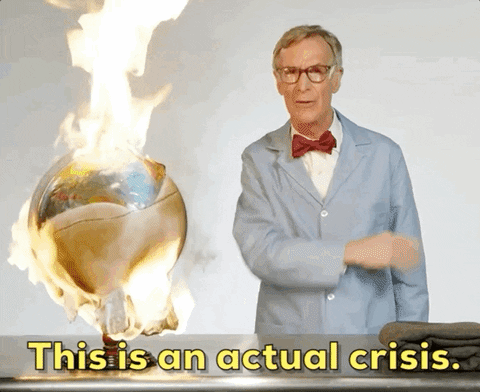
This course is designed to introduce students to the nature of the Earth’s physical climate. It introduces the basic scientific concepts underlying our understanding of our climate system. Particular emphasis is placed on energy and water balances and their roles in evaluating climate change. The course also evaluates the impact of climate on living organisms and the human environment. Finally, past climates are discussed and potential future climate change and its impact on humans is evaluated. Satisfies: N Natural Science (N)
AAAS 323 African & African-American Studies – Black Lives Matter
The police killings of Breonna Taylor, George Floyd, and other Black Americans in 2020 ignited social uprisings and calls for racial justice across the U.S. In AAAS 323, take a closer look at the movement that became a rallying cry for a generation of change-makers: Black Lives Matter.
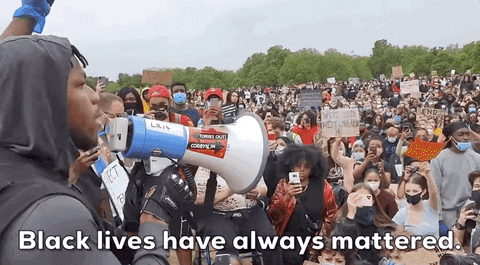
Lecture and discussion course in African-American area of current interest. May be repeated for credit toward the major. Satisfies: Satisfies: H Humanities (H)
BIOL 420 Biology – Stimulating the COVID Pandemic
The COVID-19 pandemic shook the whole world in 2020, impacting practically every corner of daily life and society. For a better understanding of the biological elements at work in the development and spread of the coronavirus, take BIOL 420.

The preparation and presentation of oral reports on selected topics from the recent research literature. Students may choose one interest group each semester, but may enroll in a given interest group only once. Enrollment in each interest group limited to twenty students. Satisfies: N Natural Science (N)
EVRN 420 Environmental Studies – Global Environmental Justice
Meaningful change to and participation in the development of environmental policies, regulations, and laws that affect us all is made possible when diverse voices and backgrounds are brought to the table. In EVRN 420, you’ll examine global environmental justice concepts and initiatives – their successes and challenges, impact, and goals for a better, more equitable future.
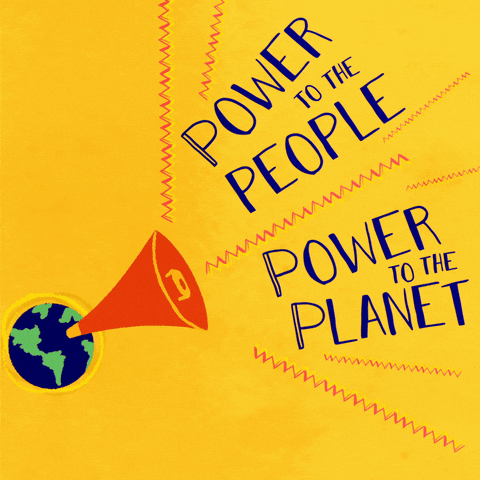
Courses on special topics in Environmental Science and/or Policy. These courses may be lecture, discussions, or readings. Students may enroll in more than one interest group but may enroll in a given interest group only once. Satisfies: Lab and Field Experiences (LFE), N Natural Science (N)
For more information, check out KU’s schedule of classes. Ready to discuss options? College of Liberal Arts & Sciences majors can schedule an appointment with their advisors at http://collegeadvising.ku.edu/.